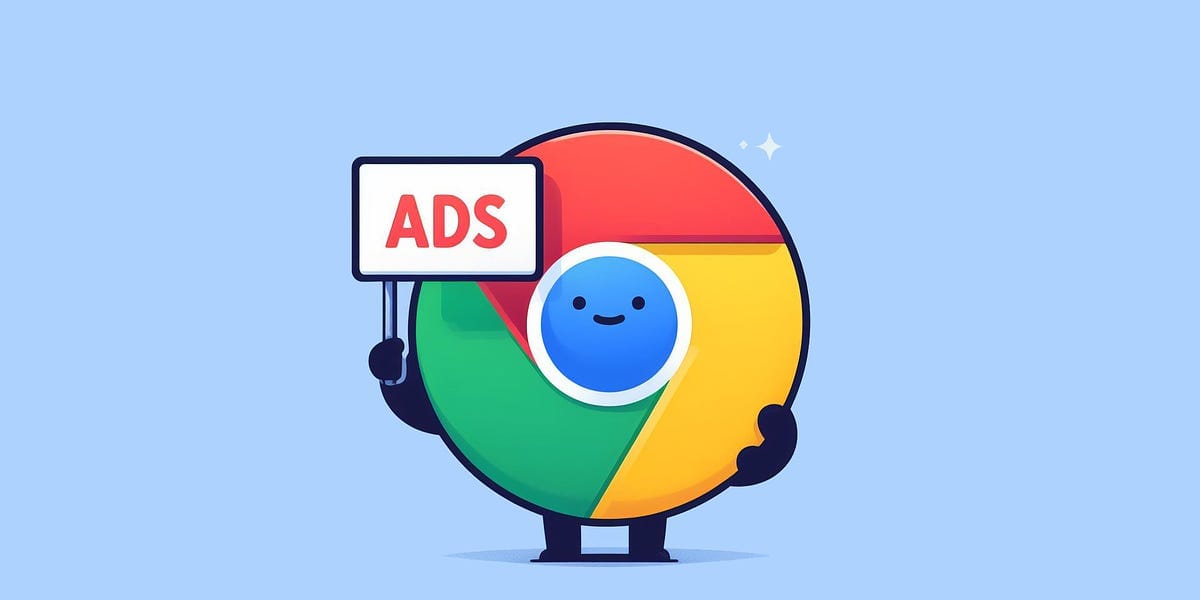This finally made all my Chrome friends switch to the fox. about time
I mean it’s just a browser. Bit of fiddling with the saved password and your go to go again to never look back. If they value their users they will improve again like Firefox did in the background over years.
I only hope a good search engine will appear again. I don’t like the alternatives.
If you are smart, you have a password manager that you login once then everything is there and ready to login to every single account instantly.
I have been using swisscows for about a month. It’s no Google… But it seems to be better than what Google is now…
Since January 2018, 42% of malicious extensions use the Web Request API.
That’s like making knifes illegal in general because they have been used in a certain amount of murder cases.
And now, a new golden age of malvertisement will emerge…
Indeed. What a f-ing stupid argument: “We cannot trust the extensions that the user installed, therefor we give malware from advertisers free roam!”
If 42% of crimes used a handgun, we should ban those too.
You just made the argument for gun rights.
Thank you and I love you. <3
You just made the argument for gun rights.
Definitely not. Gun ownership should be abolished like slavery was. A knife has good use for cutting and cooking, but a gun, especially in private hands, has absolutely no reason to exist.
Gun ownership should be abolished like slavery was.
I’ve got some awful news for you about slavery
a gun, especially in private hands, has absolutely no reason to exist
Americans phrase it a bit different:
‘Fuckin guns fuck yea!’Yep. One of the many intellectual challenges that the US is facing…
So you completely accept the state’s monopoly on violence, and you also don’t think farmers should be allowed to shoot pests?
This is a statement made by someone who lives in a political and ecological bubble.
So you completely accept the state’s monopoly on violence
Better than spreading this to everydays mass shooting event culprits, don’t you agree?
“Spreading”? It’s already spread.
Plus it’s kind of impossible to understand how you see police brutality and the way they responded to the George Floyd protests and think, “Yeah, these guys should be trusted with the only guns in existence.”
Like have you already forgotten about Uvalde? If the cops hadn’t been there to cower behind their cars and stop people rescuing their kids then less kids would’ve died.
First: Is “every redneck yokel and his dumb brother is allowed to own an arsenal” in anyway better than a government monopoly in that regard?
Second: This would of course need properly selected and trained policemen, not those trigger-happy yokels that the US uses instead.
My position is from a country where “Police Brutality” is seen as an American or other third world country thing. We don’t allow every random idiot to own a gun. We have properly trained police. We therefor also don’t have issues like Uvalde and George Floyd. For an American, it is hard to draw a straight line between those factors, but in the rest of the civilized world, it is the standard.
So sorry for assuming you were talking about the US when you talked about school shootings.
I come from a country like that too, but if you think police brutality doesn’t happen in your country then again: political bubble.
Go ahead, tell me what country you’re from and I’ll burst it for you.
I used to say the same thing about my country, Australia, where they’ve recently been imprisoning whistleblowers who expose clear government abuse. EDIT: They’ve also been doing racist colonial violence since day 0 and they have never stopped.
There is no such thing as a state that can be trusted with violence. They always use it to oppress.
So you completely accept the state’s monopoly on violence
That’s the whole point of the state. And no, you guys are not fighting the US army with its armored vehicles, rockets, bombs, drones, etc. with your guns if it comes to this.
The point of the state is to maintain one class’s domination over others, violence is just the means to achieving that. It’s not a good thing.
And not all armed resistance takes the form of open warfare.
Under a strong state one viable way of resisting the state is community defense. For instance the Black Panthers began open carrying to observe police doing traffic stops, because black men kept getting killed (edit: of course we know they still are).
The state’s response was weapons bans. That ban targetted the Black Panthers and was selectively enforced against them. This is where California got its reputation for banning guns. It was the state maintaining its ability to oppress people along class and racial lines.
Eh, on Linux, it’s probably in your package manager, and likely already installed. Just be careful with Ubuntu since they use snaps.
Nonsense like this is why I no longer use Ubuntu (or anything else downstream of Canonical, or anything with Snaps).
Be careful?
Firefox auto-updates with the snap version, whereas it doesn’t with most package manager versions. So if it updates while you’re using it, it won’t let you open new tabs without restarting it (Firefox, not the machine), which can interrupt your workflow. On other distros, that only happens when installing updates manually, which isn’t an issue because you’re aware of it.
This is second hand info though since I don’t use Ubuntu, so YMMV.
nix run nixpkgs
https://floorp.app/ Been lovin this fork solely because the vertical tab bar integration is awesome.
TL;DR use FF
(and other browsers)
… that aren’t Firefox.
The article talks about Firefox too.
Run a pihole or similar
Your web browser is just one piece of software on your network capable of displaying ads and collecting data
Network-level adblock cannot replace browser-level adblock and vice versa
Both… both is good
I thought this requires permission to a router. Can you do this say at a dorm or an apartment where internet is provided for you through a portal
Another user commented that you can run Unbound (the technology used by pihole) on your machine.
Even easier, configure your device to use an ad block DNS resolver. Control D has free ones: https://controld.com/free-dns
If you like this article, please consider following the site on Mastodon/Fedi, email, or RSS. It helps me get information like this out to a wider audience :)
I didn’t even click the article. Here’s Why -
They only have 40 posts so I gave them a follow. It’s when accounts have like 10k posts and an account is less than a year old that I won’t follow them, I don’t need that noise.
I think I’ve made this comment before, but I really wish people would learn more about technologies like pihole. Get the ad once, get the hyperlink, add it to blacklist.
I run a pihole as well, but it is a very rudimentary tool compared to browser based adblockers like uBlock origin. It can only block DNS queries, and can’t for example block ads if they are served from the same domain as the main site (i.e. youtube) or block specific elements on a page or block a specific script from running.
can’t for example block ads if they are served from the same domain as the main site (i.e. youtube) or block specific elements on a page or block a specific script from running.
Yeah that’s true.
Too much effort for pretty much everything that normal AdBlock already did
But it’s worth it… pretty much can block anything and everything across the entire network - on all endpoints.
Until that ad also happens to be for a legitimate website you want to visit. I’d rather have a adblocker I can change right there in the website
That’s a very rare case, and you can whitelist a domain using the pihole’s web interface. It may require extra two clicks, but I had to do that maybe twice in the last year.
Ironically, I wish people including yourself knew more about shit like how PiHole/RaspPi simply leverage Unbound, which is not unique to only Pi software or Pi devices. You can do this same thing on any OS that has it installed.
Adblock is more than just a DNS sink. I have both of those, but still use ublock origin.
Yep, same
uBlock Origin for Chrome has over 34 million installations according to the Chrome Web Store
Oh wow, that is very surprising to me. I somehow expected a billion of installations. Especially when I saw the screenshots without it in the article, how can anyone browse the web without it?
Adblock users are still a statistical minority of web users. Most people don’t care (as evidenced by Netflix’s ad tier gaining subscribers every quarter) or don’t know those extensions exist.
There are other ad block options. And there is Firefox. I use Vivaldi browser, it has a built-in ad blocker, just like many other browsers. I just wish Vivaldi would be Firefox based.
What a garbage article. Chock full of google propaganda and fear mongering.
What specifically is “google propaganda and fear mongering” in the article?
I don’t think that’s necessarily the case: Google knows as well as I do that a total crackdown would give governments like the European Union and United States more ammo for antitrust lawsuits.
They do not care, never have, never will. Cost of operation.
It would also be a motivator for more people to switch browsers, which would weaken Google’s browser monopoly.
Not enough even care that would make noticable difference in market share.
A lot of people were upset 23 years ago when Windows ME removed real mode DOS, too.
And they all stopped using it, right? Right?
The new Declarative Net Request API is still a downgrade in capability compared to the older API, but the feature gap has closed significantly.
Chrome now allows extensions to include 100 rule lists, with up to 50 lists active at once. There are also additional filtering options, including an option to have case-insensitive rules, which cuts down on duplicates in filter lists. The maximum number of filter rules now varies by use case — an extension can now have up to 30,000 dynamic rules (filters downloaded by the extension) if they are deemed as “safe” (block, allow, allowAllRequests or upgradeScheme), an additional 5,000 other types of dynamic requests, and more filters included in the extension package.
for context, EasyList is just one of the lists enabled by default in uBlock Origin and other ad blockers, and it has over 75,000 rules.
Can you math? Feature gap almost same as before.
That’s up to 30K dynamic rules, at least 30K static rules, and at least 1K regex rules: https://developer.chrome.com/docs/extensions/reference/api/declarativeNetRequest#property-GUARANTEED_MINIMUM_STATIC_RULES
That seems like it’s fine for general use, and those limits might go up again. EasyList and the other big lists can be consolidated to varying degrees with Chrome’s rules format, and there’s probably some dead rules in there. uBlock Origin on Firefox will definitely be more versatile moving forward, but every time I’ve used uBlock Origin Lite in Chrome it’s almost the same experience.
Why even make limit at all? Should not have any.
EasyList and the other big lists can be consolidated to varying degrees with Chrome’s rules format
Source? Or you just assume they can? What about specific list? List by small maintainer?
Not convinced feature gap any better yet just by slightly higher number and not said real number and vague „can compress list“.
Also, until Hill say satisfied with api or proven it enough to fight google head on in adblock war, not think good enough.
Mentions UBlock seems.to be fast and safe, but that the API used lets extensions look at everything you do amd can dramatically affect browser speed. Implying that UBlock Origin is responsible for Chrome being such a memory Hog and that they, not Google, are the ones after your data.
That performance cost seems to be negligible in uBlock Origin and other popular ad blockers that have focused on optimization […], but there were probably other extensions not doing that well.
The article goes out of its way to not do what you’re accusing it of. I don’t understand how you’ve managed to read the article as having the opposite slant as what it actually does.
Except the part where it didn’t imply that at all?
That performance cost seems to be negligible in uBlock Origin and other popular ad blockers that have focused on optimization (uBO has an explainer wiki page), but there were probably other extensions not doing that well. It’s not hard to see a situation where multiple poorly-optimized extensions installed using the Web Request API could dramatically slow down Chrome, and the user would have no way of knowing the issue.
What’s Google?
A misspelling of googol, which means 10100.
Seemed pretty level headed and surprisingly well written to me.


















